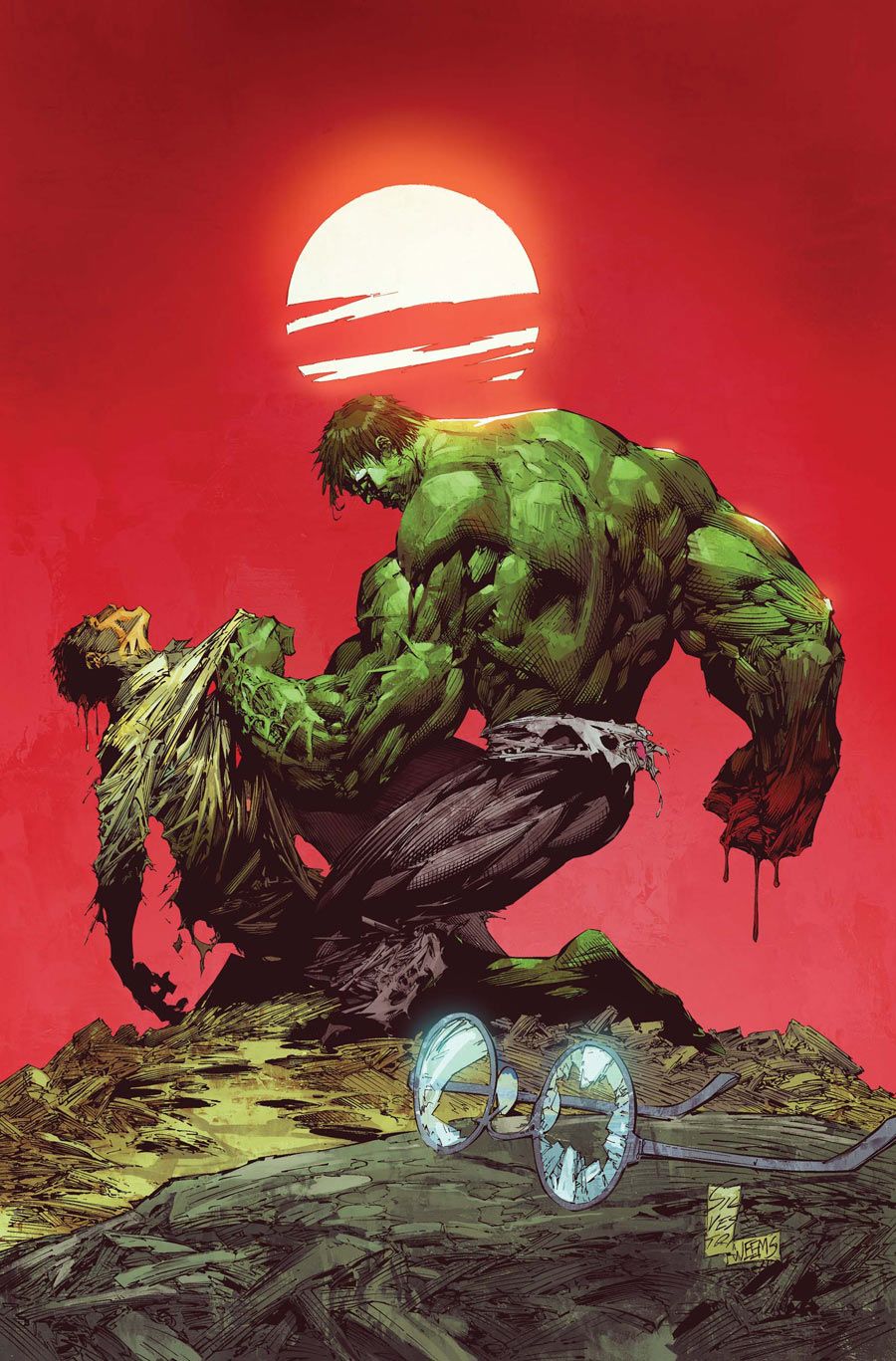Of all the archetypal Hulk stories, the ones that seem most genuine to me stem from the character's desire to be left alone, and the unwillingness of those around him to respect that wish. Jason Aaron clearly has a similar viewpoint, with this issue finding the Hulk maneuvered, once again, into engaging with his antagonists against his wishes.
For the last three issues, Aaron's Hulk has had an uneasy, almost hyper-real tone to it, with Banner's personality distilled into obsessive psychopathy, a Hulk whose calm outstrips his rage, and all kinds of similarly vivid characters running around the periphery. The semi-intelligent Boar Brothers are at once disturbing and charming. The comedic back-and-forth in this issue somehow imbues these joke characters with a tragic air that bites double when the extent of their injuries becomes apparent on the final pages. It's this attention to detail that makes Aaron so compelling a writer.
If the writing attracts any real criticism, it's that the pace of the book is slow and deliberate, while the book's scope is positively claustrophobic. Every moment is fully expanded, while the action is limited to only a few, unfamiliar locations. It draws out the story in a way that threatens to become frustrating, but hasn't done so just yet. Instead, the constraints help create the psychological tone that the book enjoys, in spite of such odd concepts as hulked-out sharks and boar/human hybrids.
Silvestri's work (which, for those keeping track, is now credited, rather vaguely, as 'Line Art') is a surprising fit for the story. Where Aaron's writing is strange and insular, Silvestri's art is lush and accessible. It creates a contrast, but one which balances the story rather than abrades it. His style wouldn't suit every arc, but this one plays to his strengths and minimizes his weaknesses. It's the big moments that benefit most, and the final page reveal in particular milks the most from Silvestri's individuality.
Those interested in the book's wider arc -- the question of how Banner and the Hulk got separated -- will find the first concrete hints towards that mystery here, in what feels like a rather belated flashback sequence. It's tough to see how this squares up with what insight was already delivered in the "Fear Itself" epilogue (right now, it doesn't seem to at all) but it's clear that Aaron is planning to address the matter, if not with particular urgency. Indeed, as a reader, the question of how it happened seems far less interesting than the questions of how the characters adapt, and how it'll affect their relationship.
The biggest strength of Aaron and Silvestri's Hulk is undoubtedly the tight focus on the character that the art and writing afford. It's a welcome change from the last few years, where multiple spin-offs of the character dominated his world. It might not be perfect, but it is interesting, and most importantly, it doesn't feel like a homage to earlier work. Hulk fans everywhere can (and should) expect to be entertained and intrigued in equal measure.

